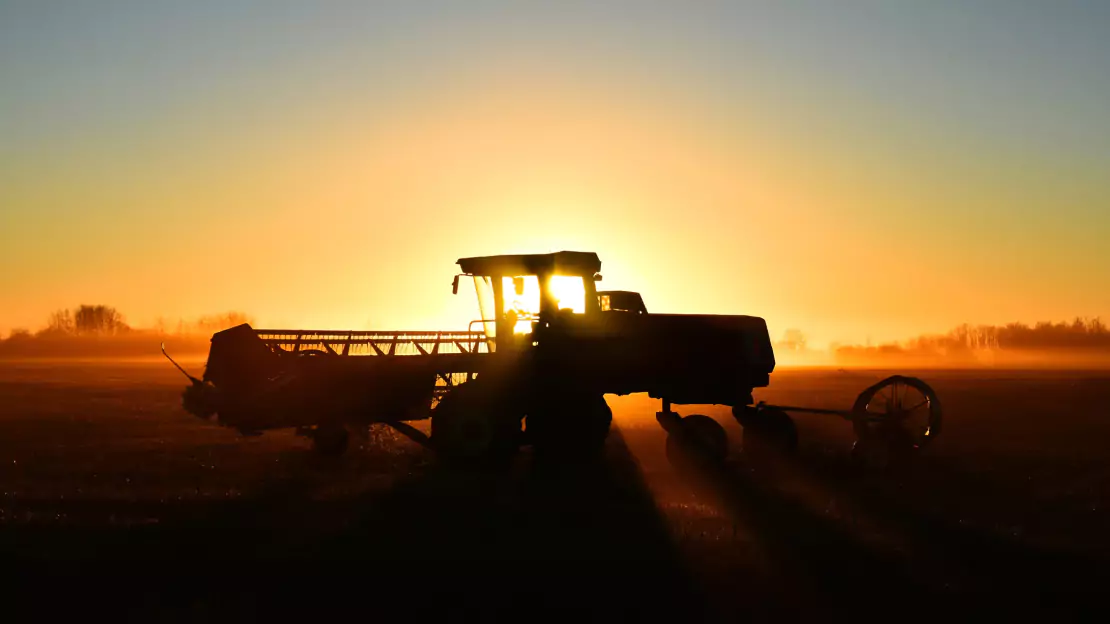Tax Tips Large-Scale Farmers Need to Know

Featured Topics:
- How Depreciation Can Lower Taxes on Big Equipment Purchases
- Utilizing Agricultural Tax Credits and Deductions
- Managing Income Fluctuations Due to Commodity Price Volatility
- Thinking About Selling Land? Be Smart About Handling Capital Gains
- Impact of Changing Tax Laws on Large-Scale Agriculture
- Conclusion
Are you confident your farm is taking full advantage of the tax strategies available to operations of your size? When managing thousands of acres and a year-round payroll, taxes aren’t just an end-of-year chore; they’re part of the big picture.
The decisions you make throughout the year, from buying new equipment to selling a parcel of land, can carry tax consequences. Without a plan, these consequences can quietly erode your profits. In this guide, we’ll explore the major areas where large-scale agricultural operations can use the tax system to their advantage.
How Depreciation Can Lower Taxes on Big Equipment Purchases
For operations that rely on heavy equipment and high-dollar upgrades, depreciation rules can offer real relief. When you’re investing in new tractors, combines, grain systems, or irrigation equipment, the IRS gives you a few options to recoup some of that cost.
Common depreciation strategies include:
- Section 179 Deduction: Allows you to deduct up to $1.25 million (2025 limit) in qualifying equipment purchases in the year you place them in service.
- Bonus Depreciation: Offers a 40% first-year deduction for new and used equipment through 2025.
- MACRS Depreciation: The standard system for depreciating assets, such as machinery, typically over a period of 7 years (if used) or 5 years (if new), if not fully expensed upfront.
Making the right call on how and when to depreciate can help manage your taxable income in high-earning years. Our Agribusiness professionals can guide you in choosing the best timing and approach for your capital investments.
Utilizing Agricultural Tax Credits and Deductions
Agricultural operations can benefit from various tax credits and deductions designed to support the industry. These include conservation expenses, charitable contributions, and state-specific incentives. For example, deductions for soil and water conservation expenses can reduce taxable income, while donating commodities directly to charitable organizations may offer dual tax benefits.
MBE CPAs provide comprehensive tax solutions with a personalized approach that is applicable to your agribusiness. This guidance can help ensure that you’re taking full advantage of available tax-saving opportunities.
Managing Income Fluctuations Due to Commodity Price Volatility
Ask any farmer about the market and you’ll hear the same thing: it’s never steady. Agricultural income is inherently volatile, influenced by factors like weather conditions and market demand. One way to manage the tax burden that comes with unpredictable income is through income averaging.
Income averaging lets you spread a high-income year across the last three, which can lower your tax bill. It’s especially helpful after a season where everything aligned, weather, prices, and yields. You can find the specifics in IRS Publication 225, but we recommend sitting down with someone who knows how to make the numbers work for your particular setup.
Additionally, crop insurance and revenue protection plans can buffer those years when conditions aren’t in your favor. These payouts come with their own tax considerations, but they’re a key piece of financial stability. At MBE CPAs, we help farm owners build tax plans that align with the cycles of agriculture, whether it’s a bumper crop or a tough season.
Thinking About Selling Land? Be Smart About Handling Capital Gains
Land is one of the most valuable and most taxed assets on the farm. When it comes time to sell, transfer, or reallocate, planning ahead can preserve more of what you’ve built.
Here are a few ways to minimize tax impact:
- Capital Gains Tax Rates: Long-term capital gains are taxed at rates ranging from 0% to 20%, depending on your taxable income.
- Installment Sales: Spreading the sale proceeds over multiple years through an installment sale can defer tax liability. This approach allows for better cash flow management and potential tax savings.
- 1031 Like-Kind Exchanges: Reinvesting proceeds into similar property can defer capital gains taxes, preserving capital for continued investment in agriculture.
Each option has specific requirements and implications. Consulting with a tax advisor can help determine the most advantageous approach.
Impact of Changing Tax Laws on Large-Scale Agriculture
Tax laws change frequently, and for large-scale agricultural operations, these changes can significantly impact key areas, including equipment write-offs, land transfers, and overall tax liability. For instance, phased reductions in bonus depreciation can significantly impact how farms plan major purchases. Potential rollbacks of estate tax exemptions after 2025 could also increase the tax burden on family-owned farms. These shifts can disrupt budgeting, investment timing, and succession strategies.
As of this year (2025), bonus depreciation has decreased to 40%, down from 80% in previous years, which means farms are now facing higher upfront costs when investing in new equipment. Additionally, if Congress does not act, after 2025, the federal estate tax exemption will be reduced to approximately $7.2 million per individual, a significant drop from recent years. This change increases the likelihood that family-owned farms will owe estate taxes upon transferring land and assets, making succession planning more complex and financially demanding.

Conclusion
Tax planning is important for any agricultural operation, no matter its size. With bonus depreciation decreasing annually, carefully timing equipment purchases can significantly reduce costs. Likewise, preparing for shifts in estate tax law is key to securing your farm’s future.
Making informed decisions in these areas directly impacts your operation’s financial stability and long-term success. Proactive planning helps minimize unexpected tax burdens and allows for a smooth transition of your legacy to the next generation.
MBE CPAs works directly with farm owners to develop strategies for the demands of large-scale agriculture. We help you stay ready, reduce surprises, and protect what you’ve built for the future. We anticipate additional tax law changes this year with the Trump administration and will provide an update when that happens.
To begin, contact our Agribusiness team and discover how we can support your operation year-round.
